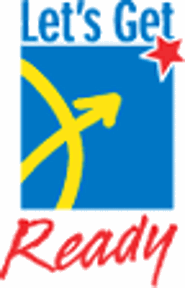
On an Alternative Spring Break trip last year, Alysha Banerji ’11 was working with first-graders at a school in North Carolina when one of them proclaimed that his cat had just birthed kittens. The boy asked if Banerji wanted one, but when she told him that pets weren’t allowed in college dorms, he exclaimed, “I want to go to college!”
“You’re not going to college,” retorted the boy’s friend.
Alysha was struck by the bitter remark. “I didn’t really know what to do. I thought, here is a first grader who doesn’t even know what college is, and he’s already internalized the notion that he’s not going to go to college.”
The incident laid the groundwork for Alysha’s summer ’10 involvement with the Boston-based Let’s Get Ready (LGR) program, an SAT tutoring organization that Alysha decided to implement at Hamilton. Her fall ’10 semester was spent sorting out details and securing funding from the Kirkland Endowment and the Office of the President.
A total of 20 Hamilton students are starting work this semester as tutors to underprivileged students in the Utica area through the Hamilton chapter of LGR, says Banerji. Amy James, director of Hamilton’s Community Outreach and Opportunity Project (COOP), coordinated with Utica College’s Young Scholars program to select other particularly talented students and place them in the newly instituted Hamilton division of LGR. Some Hamilton students participated in the Colgate LGR program last year; these tutors were recruited by the Levitt and COOP VISTA members working jointly with the Colgate VISTA member.
The Young Scholars program identifies above-average high school students and gives them supplemental academic support. Upon graduating, those students are granted admission to Utica College.
“Because these kids have already had leadership opportunities and have been working in the Young Scholars program for several years, we also wanted to extend the program to other students who may not have had the same potential in seventh grade but are now getting ready for college,” said Banerji. So on Mondays and Tuesdays, 13 of the 20 Hamilton tutors trek over to Utica’s Underground Café, where Proctor High School students who are not in the Young Scholars program are also developing the requisite skills to ace the SAT.
At the beginning of the semester, LGR volunteers led a training session at Colgate University where Hamilton tutors learned how to communicate the material and create lesson plans. Most of the tutors have had previous tutoring experience, and by virtue of attending college themselves, they are familiar with the SAT structure. Each is assigned about three students, most of whom are on free or reduced lunch plans; without LGR, they wouldn’t have the money to pay for a traditional SAT course.
Banerji says high school students who never receive preparation for the SAT typically score significantly lower than other students. “The thing is, the SAT doesn’t really measure your intelligence,” she said. “It’s more about just knowing how to take it.”
Kate Moore ’12, the head verbal coach for the students enrolled in the Young Scholars Program, agrees that these students already have the right tools – the tutors just need to activate them. “They all know where they want to go to college and what they want to study, the SAT is their ticket there,” she said.
Moore says that one of the strategies students should use in writing the SAT essay is literary resourcefulness: if a student knows a novel well enough, he can use it to help answer a variety of different prompts. One of Moore’s more reluctant students opened up to the idea of writing when she realized she could write about The Glass Castle by Jeannette Walls.
“I could see that it was really clicking with her as to how she could incorporate the book into the essay, and she got really enthusiastic about it, which was great,” Moore said.
The community’s involvement with the program shows how widespread the concern is for high school students in financially unstable situations.
“I'm really impressed with the interest in the program on the part of the tutors,” said James. “Most of these kids are first generation, and they don't necessarily have others in their families who are supporting their efforts. The Hamilton tutors can be great role models and mentors for them.”
